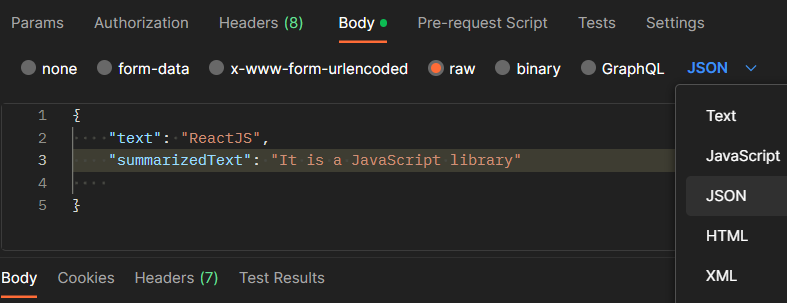
|
|
Working with forms and handling data submissions is a basic requirement in web development. When using Node and Express for building APIs, you might get an error that the FormData object is undefined. In this article, we’ll explore how to resolve form data getting undefined in a Node/Express API. The FormData object is a part of the Web API and is commonly used to construct a set of key/value pairs representing form fields and their values. It is often used in the frontend to send form data to a server, especially when dealing with file uploads. There may be several reasons for this issue:
We will discuss the following approaches to resolve this error Table of Content Approach 1: Install and Use body-parser MiddlewareIf you encounter issues parsing incoming POST request data, one effective solution is to utilize the body-parser middleware in your Node/Express application. This middleware facilitates the parsing of request bodies, enabling you to extract data from incoming requests. Run the following command to install the body parser. npm install body-parser Basic syntax in ExpressJS application. Javascript
Approach 2: Submit Data Using Raw JSON Format in PostmanIf the issue is specific to Postman, consider submitting data using raw JSON format instead of form data. Postman allows you to send requests with various data formats, and opting for raw JSON can help ensure the correct interpretation of your data on the server side. Steps:
Approach 3: Verify and Use the Correct MiddlewareIncorrectly choosing or configuring middleware to parse incoming request data can lead to parsing failures. Ensure that you are using the appropriate middleware for your specific use case, whether it’s for JSON or URL-encoded data. Steps:
Javascript
Approach 4: Check Content-Type Header in Incoming RequestsThe Content-Type header in incoming requests specifies the type of data being sent. An incorrect Content-Type header can lead to parsing errors. Ensure that the header is set to either application/json or application/x-www-form-urlencoded based on the type of data being transmitted. Steps:
Javascript
|
Reffered: https://www.geeksforgeeks.org
| Express.js |
Type: | Geek |
Category: | Coding |
Sub Category: | Tutorial |
Uploaded by: | Admin |
Views: | 12 |